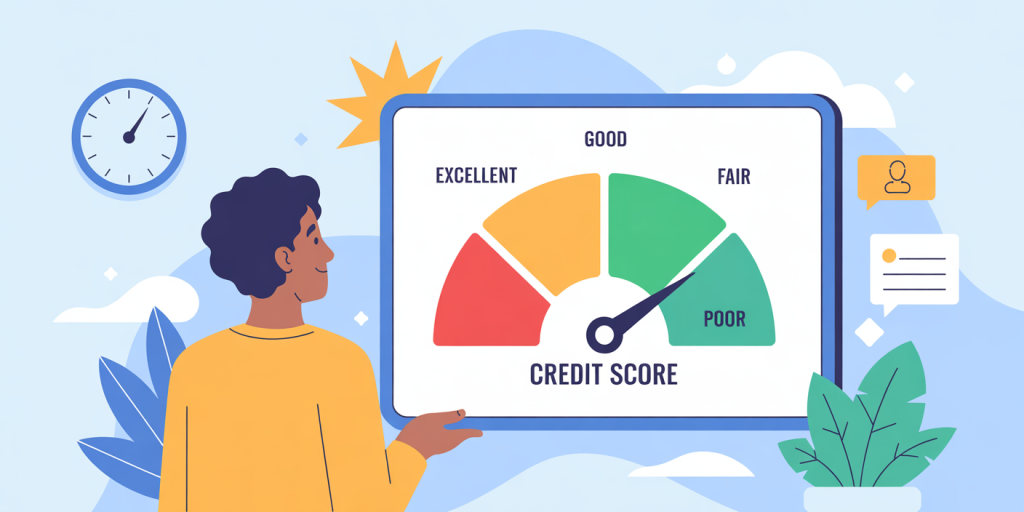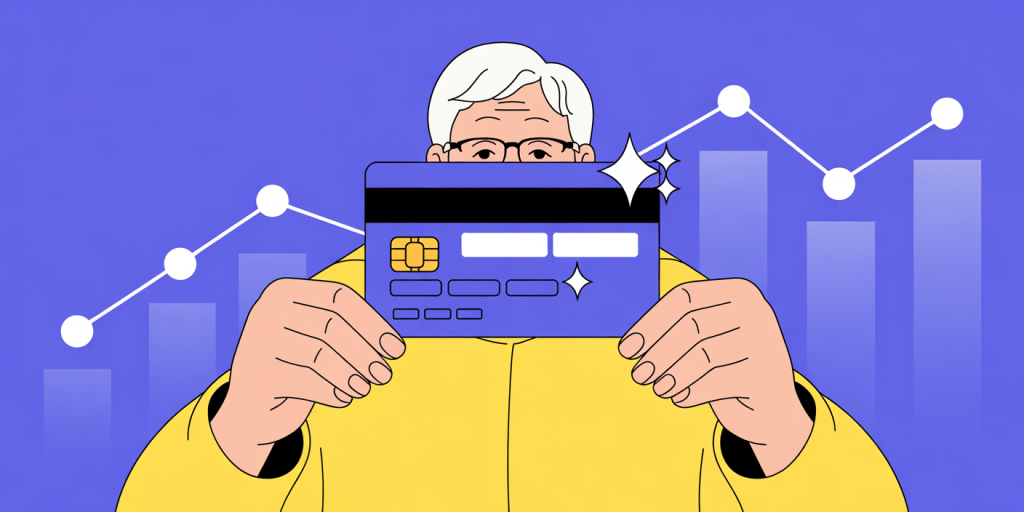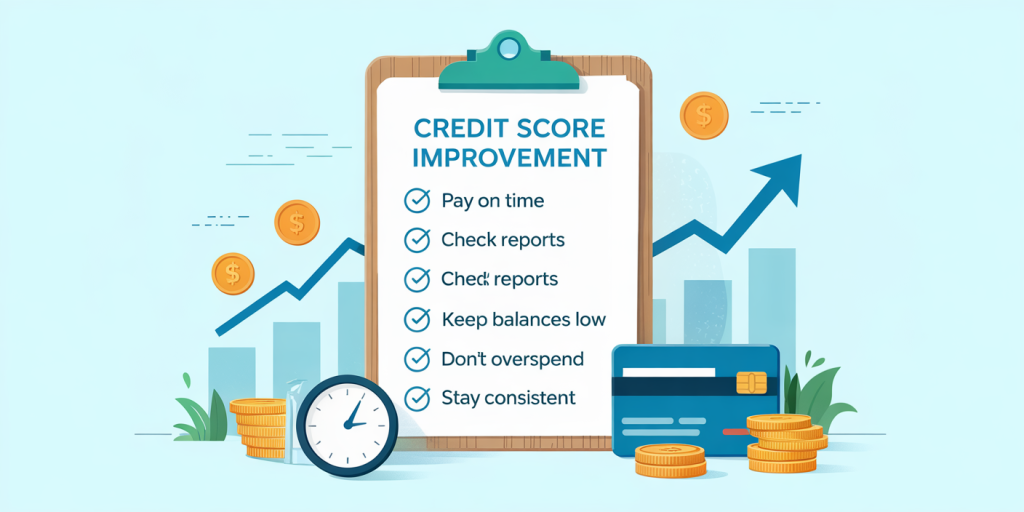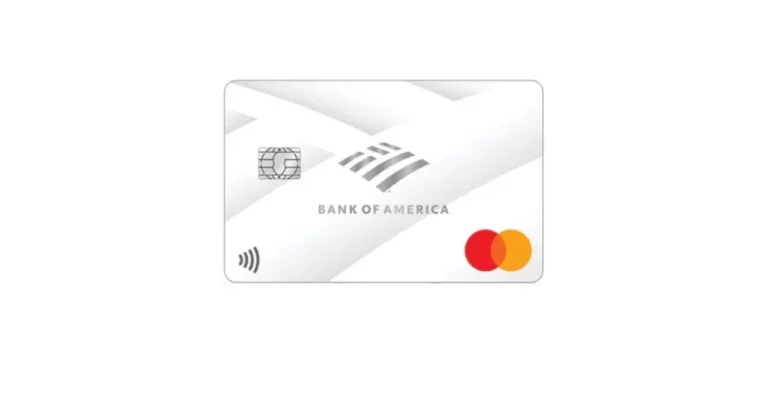How to Improve Your Credit Score: Proven Tips That Really Work
Anúncios
How to Improve Your Credit Score: 8 Powerful Strategies That Really Work

A strong credit score is one of the most important financial assets you can have. It not only influences your ability to get approved for loans, credit cards, and other types of financing, but also determines the quality of the terms you’ll be offered—such as interest rates, credit limits, and repayment periods.
In the United States and many other countries, your credit score serves as a core indicator of your financial trustworthiness. Lenders, landlords, insurance companies, and even some employers rely on it to assess whether you’re likely to manage financial obligations responsibly.
Anúncios
If you’re looking to improve your credit score and open the door to better financial opportunities, the good news is that there are clear, actionable steps you can take. Below are eight practical, effective strategies that can make a real and lasting difference—no gimmicks, no shortcuts, just smart financial habits.
1. Always Pay Your Bills On Time
This is the most important factor in determining your credit score. Your payment history accounts for the largest portion of your FICO score (about 35%). Even a single late payment can cause a noticeable dip, especially if it’s reported more than 30 days past due.
Anúncios
And it’s not just credit cards and loans—some utilities, cell phone companies, and service providers also report to credit bureaus. Late payments in any of these areas can negatively impact your credit report.
✅ What You Can Do:
Set up automatic payments or calendar reminders.
Prioritize minimum payments to avoid missed deadlines.
If you anticipate difficulty, contact the creditor in advance to negotiate a solution.
Think of it this way: credit scores are built on trust—and trust is established by proving you pay what you owe, when you owe it.
2. Keep Your Credit Utilization Low
Your credit utilization ratio is the percentage of your available credit that you’re currently using. It’s a significant factor in your credit score—making up roughly 30% of the FICO calculation.
Here’s How It Works:
If you have a total credit limit of $10,000 across all your cards, and your combined balance is $3,000, your utilization rate is 30%.
Experts recommend staying below 30%, but the lower, the better. Ideally, a utilization ratio under 10% is optimal.
💡 Pro Tip:
If you’re finding it difficult to stay under 30%, you can:
Request a credit limit increase (without increasing your spending).
Pay off your balances multiple times a month instead of just once.
Spread purchases across multiple cards.
High utilization signals financial strain and can suggest you’re over-reliant on credit—both red flags for lenders.
3. Don’t Open Too Many New Accounts
Applying for a new credit card or loan triggers a hard inquiry on your credit report. While one inquiry isn’t a big deal, multiple inquiries within a short period can hurt your score and make you look risky to potential lenders.
Additionally, opening several new accounts quickly can shorten the average age of your credit history, which also affects your score.
✅ What You Can Do:
Be strategic about when and why you apply for new credit.
Avoid signing up for store credit cards you don’t need.
Space out applications to minimize damage from inquiries.
Use new credit responsibly, and only open accounts that contribute to your financial goals.
4. Review Your Credit Reports for Errors
Errors on your credit report are more common than you might think—and they can drag down your score unnecessarily. These mistakes could include:
-
Incorrect account balances
-
Inaccurate payment history
-
Accounts you didn’t open (possible fraud)
In the U.S., you’re entitled to one free credit report per year from each of the three major credit bureaus: Equifax, Experian, and TransUnion.
🔍 Where to Get It:
Visit AnnualCreditReport.com—the only government-authorized source.
✅ If You Find Errors:
Dispute them directly with the credit bureau.
Include any supporting documentation you have.
Monitor the status of your dispute until it’s resolved.
Regularly reviewing your credit reports can help you catch problems early and maintain a healthy score.
5. Keep Old Accounts Open

The length of your credit history makes up about 15% of your FICO score. It reflects how long your accounts have been active and how long it’s been since you used them.
Even if you don’t use a particular card often, closing it could shorten your average account age and increase your credit utilization—both of which can hurt your score.
✅ What You Can Do:
Keep your oldest accounts open and in good standing.
Use older cards occasionally (e.g., small recurring charges) to avoid closure by the issuer.
Set them to auto-pay and store them safely.
A long, clean credit history is a sign of financial reliability and boosts your attractiveness to lenders.
6. Maintain a Healthy Mix of Credit
Lenders like to see that you can responsibly manage different types of credit, such as:
-
Revolving credit: Credit cards, lines of credit
-
Installment credit: Auto loans, student loans, mortgages, personal loans
You don’t need every kind of credit account—but having a mix of credit types shows lenders that you can handle a range of financial responsibilities.
✅ What You Can Do:
Don’t take on unnecessary debt just for diversity.
If you’re considering a loan for a legitimate need (e.g., car, education), know it may help your score over time.
Focus on managing existing accounts well before adding new ones.
A balanced credit profile reflects your financial maturity and management ability.
7. Settle Outstanding Debts
Delinquent accounts and unpaid debts are major red flags to credit bureaus and can severely damage your score.
If you have accounts in collections or with missed payments, prioritizing repayment can help your score recover.
✅ How to Start:
Contact lenders or collection agencies to arrange payment plans or settlements.
Ask if they will report the account as “paid in full” or remove negative remarks once paid.
Keep detailed records of all agreements and payments.
Eliminating outstanding debts not only boosts your score but also gives you peace of mind and financial breathing room.
8. Be Consistent and Patient
Credit improvement doesn’t happen overnight—it’s a long-term journey. Consistent, positive financial behavior is the foundation of a higher credit score.
Stick to the basics:
-
Pay bills on time, every time
-
Keep credit card balances low
-
Avoid opening unnecessary accounts
-
Monitor your credit reports regularly
-
Don’t panic if your score fluctuates slightly—focus on the big picture
💡 Reminder:
Even small monthly gains in your score add up over time. A 20- to 30-point increase could mean the difference between a loan approval and a rejection—or getting a lower interest rate that saves you thousands.
Final Thoughts

Your credit score is a reflection of your financial behavior. It’s not set in stone, and with the right habits, anyone can improve theirs—regardless of where they’re starting.
By applying the strategies outlined here:
-
Paying your bills on time
-
Monitoring your credit reports
-
Keeping credit utilization low
-
Using credit wisely and strategically
You’ll not only improve your score but also gain access to better financial opportunities—from lower interest rates to higher credit limits, rental approvals, and more.
Stay focused. Be consistent. Trust the process. Your efforts will pay off in both numbers and confidence.

Post Comment